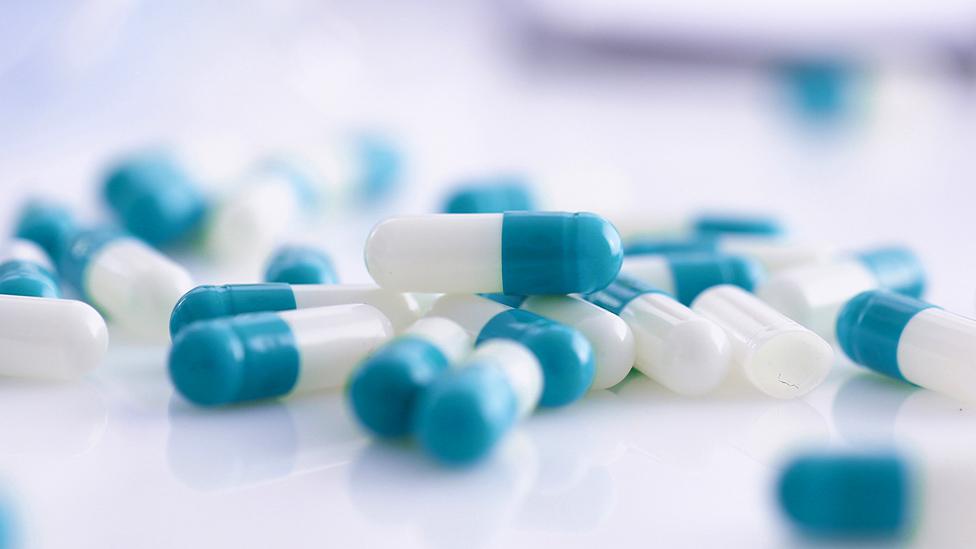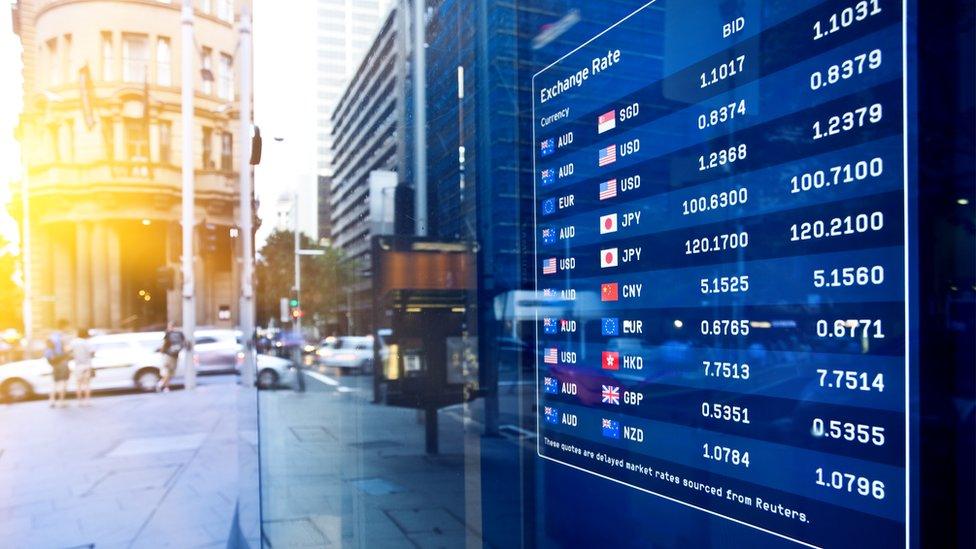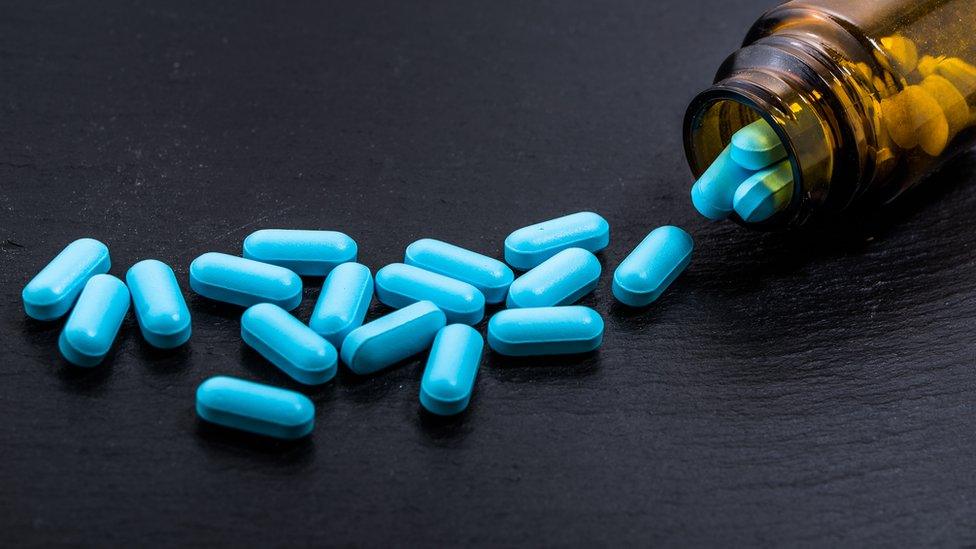Brexit: NHS no-deal fears prompt call for drugs export ban
- Published
- comments

Pharmaceutical industry leaders want a temporary ban on drugs exports to prevent the NHS being hit by shortages in the event of a no-deal Brexit.
The call came from the Association of the British Pharmaceutical Industry.
It told the BBC a drop in the value of the pound would create an incentive for wholesalers to sell medicines overseas instead of to the NHS.
The Department of Health says it is working closely with the industry to ensure continuity of supply.
Government contingency planning has been welcomed by the industry.
Concerns there could be long tailbacks of lorries at Channel ports have prompted months of preparation by officials, who have set up an advice hotline for drug companies.
They have been working to ensure six weeks' worth of medicines are stockpiled, and chartering more ferries to bring in supplies.
But the industry body told BBC News that further action was needed to counter the risk that pharmacists and wholesalers with export licences could find it more lucrative to sell products in the Eurozone if the pound weakened.
The association wants the government to impose a temporary export ban on certain vital medicines, aimed at the "parallel trade" in which wholesalers buy products intended by manufacturers for one market and export them to another EU member state.
The practice is legal but can give rise to what is known as arbitrage, that is taking advantage of varying prices in different markets.
The Greek government took similar emergency action during the financial crisis in 2013.
Steps were taken to stop medicines intended for Greek patients being exported from the country as distributors sought higher prices elsewhere.

Industry leaders fear hospital patients could be affected
It is understood that wholesalers and pharmacists with licenses to export cover a minority share of the UK medicines market.
But pharmaceutical industry leaders are concerned that if a no-deal Brexit is looming these companies could move enough of their stock out of the country to cause problems for patients.
Hospital trust managers have expressed concerns about medicine and equipment shortages, with one suggesting they could "quickly run out of vital medical supplies", leading to widespread cancellations of non-urgent operations.
In recent months there have been reports of shortages of some drugs partly caused by unofficial stockpiling by distributors.
A Department of Health and Social care spokesperson said: "We are aware of concerns raised about this issue and continue to work closely with the NHS, industry and the supply chain to ensure patients continue to access medicines in the same way they do now - whatever the EU exit outcome."
Labour's Jonathan Ashworth said: "These are serious warnings that I've raised directly with the Secretary of State in the Commons as patients are rightly worried about not being able to get access to medicines. Ministers should get a grip and suspend the necessary export licenses as those in the pharmaceutical industry are calling for."
- Published30 January 2019
- Published17 October 2019

- Published23 October 2018

